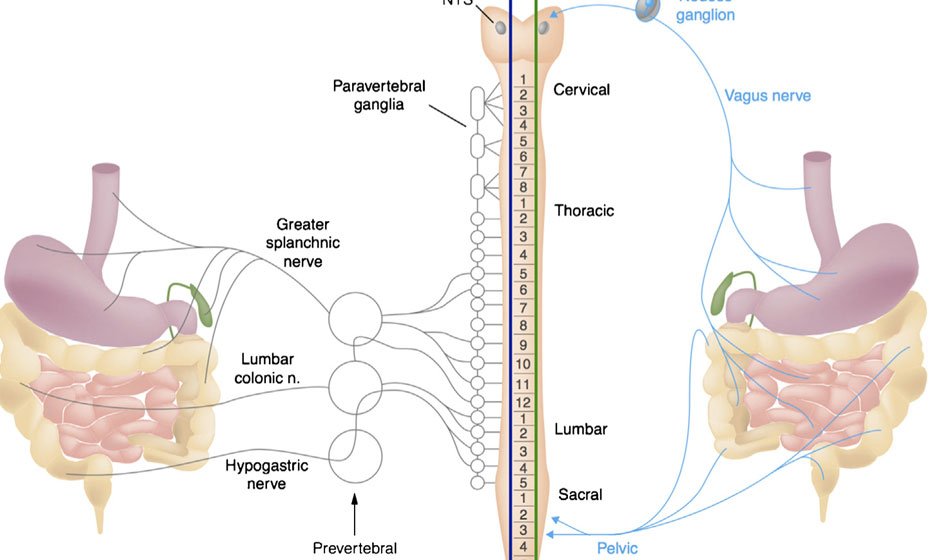Given that there is growing relevance in combining mental and physical well-being, the analysis of such aspects as affective and sensory experiences associated with eating behaviors has recently attracted significant interest. There are therefore a couple of occurrences: micro biting which encompasses biting habits that are small and may be done unconsciously; other than that, there is visceral hypersensitivity, which is a sensitivity to the internal body feelings. These two topics are discussed in this article, and their link to other types of eating and eating disorders is also examined.
Understanding Visceral Hypersensitivity
Visceral hypersensitivity involves magnification of the stimuli originating in most internally felt structures, particularly in the gastrointestinal tract. Visceral hypersensitivity is a situation in which an individual feels pain or discomfort at something that a normal individual would not consider painful. This condition is frequently associated with visceral hypersensitivity syndrome (VHS), which is a complex of diverse complaints, such as bloating, abdominal pain, and dysfunction of the bowels.
The question that follows for many is: What is visceral hypersensitivity? It is defined by an underlying physiological response whereby the central nervous system overacts to what should otherwise be regular bodily functions. People can be uncomfortable during digestion, sometimes even from basic stimuli such as swallowing or having gas, and thus create a relationship between the actual feeling of the physical self and increased psychological stress.
The Association Between Anxiety and Eating Patterns
Generally, it was found that there is a strong relationship between anxiety and eating behaviors, especially in people who have a problem with increased sensitivity of the gut. Anxiety may be the cause, or trigger for, the perceived levels of pain and discomfort, and this will make it a vicious cycle. The author defined ‘ situational food rituals’ as special techniques of approaching meals to mitigate anxiety and pointed out that people with this type of eating disorder will likely develop unhealthy eating patterns. For example, the patient with visceral hypersensitivity will exhibit pathogenic behaviors like extreme food reduction or elimination of some foods he or she regards as eliciting the symptoms.
This behavior can take the form of micro biting – a Pavlovian response or a behavioral instinct that sees tiny bites or nipping at food irrespective of hunger. Micro bites common with anxious eaters are seen as a measure of regaining control of a situation or ADHD environment.
Micro Biting: A Coping Mechanism
Micro biting can be visible as a subconscious reaction to heightened sensory reports, in which a man or woman bites meals in tiny increments. This behavior can also stem from anxiety surrounding food intake, in particular in people with visceral hypersensitivity reactions. For some, micro bites allow for a sense of management over their ingesting, presenting a manner to mitigate the concern of discomfort or aches related to certain foods.
Additionally, merchandise like “Fluval malicious program Bites Tropical Micro Granules,” at the same time as being mostly aimed at aquatic animal feeding, metaphorically illustrates how small, viable bites can serve as a coping mechanism in exclusive contexts. Simply as aquarists may use micro granules to offer balanced vitamins without overwhelming the fish, individuals may additionally adopt micro biting to manage their very own sensory studies.
Eating Disorders and Sensory Processing
Disordered eating regularly includes an intricate interplay among mental and physiological elements, of which visceral allergic reactions may be an enormous issue. Individuals with ingesting disorders might revel in heightened sensitivity to internal cues, leading to dysfunctional eating patterns. The aggregate of visceral hypersensitivity and disordered consuming behaviors can exacerbate the signs of each condition, trapping people in a cycle of soreness, tension, and maladaptive eating behavior.
Those tormented by VHS may additionally discover themselves averting meals altogether, fearing that any consumption should trigger soreness. This avoidance can evolve into restrictive ingesting patterns, causing similar complications in their relationship with food. The tricky relationship among food management, anxiety, and ingesting conduct is a crucial element in expertise in the broader context of visceral allergy.
Exploring Visceral Allergic Reaction Remedy
Addressing visceral allergic reactions regularly calls for a multidisciplinary approach that consists of dietary control, mental help, and clinical intervention. Treatment techniques might also consist of cognitive-behavioral therapy (CBT) to assist individuals reframe their courting with meals and decrease tension surrounding consumption.
In a few instances, healthcare vendors may propose unique dietary modifications to pick out cause foods or put into effect slow publicity techniques to assist individuals in experiencing greater comfort with consuming a wider variety of foods. Additionally, medications are probably prescribed to help manage pain or discomfort associated with VHS.
Even many patients are surprised, “Can visceral hypersensitivity be cured?” It is essential to remember the fact that while the whole resolution is probably difficult, many individuals can manage their signs and symptoms correctly via lifestyle changes and customized remedy plans.
Conclusion
As we unpack the sensory reveal of micro biting and visceral allergy, it becomes clear that these phenomena are deeply intertwined with our eating behaviors and mental health. Understanding the psychological underpinnings and physiological responses connected to tension and visceral hypersensitivity reactions can help people navigate their studies greater effectively.
For the ones affected by those conditions, a complete approach that considers both mental and physiological aspects is important. By way of exploring therapeutic interventions and fostering a healthier court with meals, people can work toward decreasing the effect of visceral allergy and associated consuming behaviors on their day-to-day lives. In doing so, they can begin to break loose from the cycle of discomfort, anxiety, and restrictive eating, in the end leading to progressed well-being.



